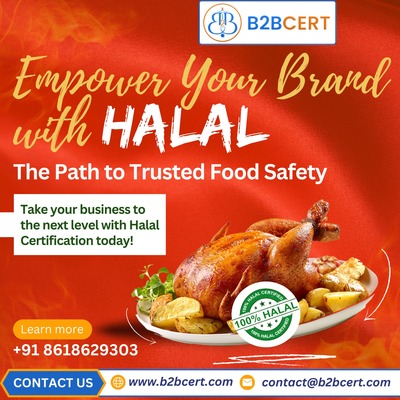What Measures Are in Place to Ensure the Halal Integrity of the
-
Ensuring the Halal integrity of a product is a crucial aspect of the food and beverage, cosmetics, and pharmaceutical industries, especially during the packaging and labeling stages. These final steps in the production chain are critical in maintaining the Halal status of a product, as any deviation or contamination can compromise its compliance. With increasing consumer awareness and demand for certified Halal products, especially in markets like the UAE, businesses are turning to reliable HALAL Certification in Dubai, guided by experienced HALAL Consultants in Dubai and comprehensive HALAL Services in Dubai.
Here are the key measures implemented to preserve Halal integrity during packaging and labeling:
1. Segregation of Halal and Non-Halal Products
A foundational measure to maintain Halal integrity is strict segregation. During packaging, Halal-certified products must be completely separated from non-Halal items. This includes using separate equipment, packaging lines, storage areas, and transportation methods to prevent cross-contamination. Facilities seeking HALAL Certification in Dubai must demonstrate that they follow these protocols consistently.
2. Use of Halal-Compliant Packaging Materials
Packaging materials themselves must also be Halal. Materials that come into direct contact with Halal products—such as wrappers, containers, and adhesives—must not contain any Haram (prohibited) substances such as animal derivatives from non-Halal sources. Through HALAL Consultants in Dubai, companies can verify the source and composition of all packaging materials used.
3. Clear and Accurate Halal Labeling
The labeling of a product must truthfully reflect its Halal status. Misleading labels not only breach Halal guidelines but can also result in legal consequences. Labels must clearly display the Halal certification mark from an accredited body, with no false claims. Proper training and auditing under HALAL Services in Dubai ensure that labeling practices meet the regulatory and religious standards.
4. Staff Training and Awareness
Personnel involved in packaging and labeling must be trained on Halal principles. From understanding the importance of Halal segregation to identifying non-compliant materials, staff awareness is key. Training programs organized by HALAL Consultants in Dubai equip teams with the knowledge to handle Halal products properly and to respond swiftly to any potential risks.
5. Inspection and Documentation Control
Routine inspections and thorough documentation help ensure that all packaging and labeling procedures align with Halal requirements. Halal certification bodies require comprehensive records of sourcing, materials, labeling processes, and quality control checks. These documents are also vital during surprise audits and renewal of HALAL Certification in Dubai.
6. Third-Party Certification and Auditing
Engaging a credible third-party certifier ensures objectivity and adherence to international Halal standards. Certification bodies conduct initial and surveillance audits to assess whether the packaging and labeling processes comply with Halal norms. Ongoing collaboration with HALAL Services in Dubai supports businesses in maintaining certification through periodic reviews and gap assessments.
7. Corrective and Preventive Measures (CAPA)
If any non-conformities are identified during packaging or labeling—such as mixing of materials or improper labeling—corrective action must be taken immediately. CAPA systems help rectify errors, identify root causes, and implement preventive steps to avoid recurrence. This is a key area where HALAL Consultants in Dubai play a pivotal role by providing expert guidance.
Conclusion
Maintaining Halal integrity during the packaging and labeling process is a comprehensive effort that requires vigilance, proper infrastructure, trained personnel, and expert guidance. In a competitive and regulation-driven market like the UAE, businesses benefit greatly from partnering with experienced HALAL Consultants in Dubai and leveraging HALAL Services in Dubai to achieve and uphold HALAL Certification in Dubai. By implementing strict control measures and fostering a culture of compliance, organizations can ensure consumer trust, market credibility, and spiritual assurance.





